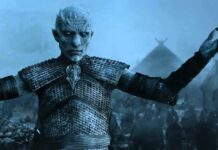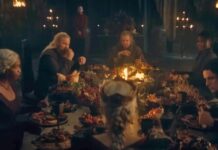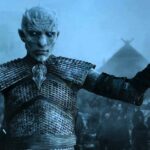A few weeks back, when Game of Thrones finally reached its divisive end, The Hollywood Reporter published an essay written by guest contributor Isaac Hempstead Wright, an all-round wunderkind who some truly dedicated fans might recognize as the face of Brandon Stark, aka the Three-Eyed Raven, king of the Andals and Lord of the Six Kingdoms of Westeros (adieu, the North). It’s a mature and enlightening take on a global phenomenon, and written by someone who, unlike the rest of us, was not reeling from an unexpected ending when he sat down to reflect on the show; the ending had long sunk in for Wright. Now that the dust from the season 8 ending has settled, how does it read to fans who may still be unhappy with the show’s controversial finale?
Before we start to ruffle feathers, let’s look at the lighter stuff. Wright’s essay is a measured take on almost a decade of super-stardom, the typical trappings of which Wright has largely managed to avoid — an achievement he seems to credit in part to his family, who were mindful of the risks presented to children in the entertainment industry. “My parents were skeptical of the whole idea of child acting and so were keen not to let it become too much of a focus,” he writes, “hence I was allowed to do six auditions, with my final one being for an HBO pilot called Game of Thrones.”
That’s a closer shave than each of Jon Snow’s numerous deus ex machina moments across all eight seasons. Perish the thought of what might have happened if Mum and Dad had allowed for five auditions. Luckily for Hempstead Wright — and us — that final audition was just the ticket, and the youngest surviving Stark sibling has been sitting comfortably in the capable hands of a fine young actor ever since. I’d like to personally extend my thanks to the coaches at his local football club for failing to see his potential. Fifa UK’s loss is Westeros’s gain.
Hempstead Wright has suffered a loss of his own, now that the show has come to an end and he has bid his last farewell to the Three-Eyed Raven. The emotional impact of closing such a important chapter in his life was profound. “This great monolith in my life that had been a yearly source of fun and familiarity was to be no more,” he writes. “It was a moment that was quite impossible to have imagined ever happening when I first embarked on this unique journey all those years before. It was very poignant, and final.”
People love to watch Game of Thrones. People adore the thing I have been a very small part of, and that is something very special indeed. Game of Thrones will stick around for many years; new people will discover it, others will rewatch it, and so it will go on. Bran may have been “dead” to me at that point, but he lives on in the intangible realm of the televisual world and in the hearts and minds of fans worldwide. And that, no matter how sad I may have found it leaving the show, is a feeling so profound that I couldn’t possibly be sad for long.
Like the rest of us, Hempstead Wright waited patiently for years to discover who, if anyone, would end up taking the coveted Iron Throne. As it turned out, nobody did. Following its destruction at the hands (jaws?) of a grieving Drogon, the most uncomfortable seat in all of Westeros was replaced by a humble wheelchair. It was a twist that not many saw coming, and almost everyone has a strong opinion about Bran’s ascension, Wright included:
I find it an extraordinary character arc to see him go from a vulnerable character totally dependent on others to the one person who holds all the keys to understanding the world. Bran becoming king is a victory for the still and considered people of this world, who too often get sidelined by the commotion of those who are louder and more reactionary.
Food for thought, perhaps, for those who have been hard on Bran over the past few years, deriding him as useless and accusing him of doing nothing to contribute to group projects while his older siblings did the bulk of the work. I personally wouldn’t call offering oneself up as human bait when the White Walkers come knocking as “doing nothing,” but that’s just one biased House Stark fan’s opinion.
Now that the initial wave of reactions — for some of us, at least — have passed, and with Wright having attained some distance from the show that shaped his life, what can the viewers take away from the show’s culmination? Can even the most disappointed of fans find something in this (literally) smoldering wreckage to make sense of, now that it’s all over? The Three-Eyed Raven certainly thinks so:
Life doesn’t have neat, happy endings; it is ambiguous and ultimately inconsequential. To end Game of Thrones with uncertainty is perhaps the most honest way to end a story so vast and complex — and that uncertainty is what we all feel as we begin our life after Thrones.
With opinion on the final season of the show so divided, and with the largest, loudest faction of fans seemingly swaying to the side of the detractors, Wright’s assessment of the ending hits a lot like tough love. He doesn’t pull his punches, nor does he try to coat the finale in sugar. Life is not designed to give us everything we want, and Game of Thrones, while a work of fantastical fiction – direwolves and dragons and all — was designed to reflect the realities of that life. Reading between the lines, it seems Wright’s message is clear: deal with it.
Words of wisdom from the Three-Eyed Raven? Chillingly unfeeling remarks from a harsh and unyielding king? Either way, a prolonged glance at this essay makes it easy to understand how Isaac Hempstead Wright so naturally embodied Bran Stark’s transformation from a wide-eyed, naive lordling to a pragmatic and dispassionate leader. Long may he reign, indeed.
To stay up to date on everything fantasy, science fiction, and WiC, follow our all-encompassing Facebook page and sign up for our exclusive newsletter.
Watch Game of Thrones for FREE with a no-risk, 7-day free trial of Amazon Channels




















![[Book Review] The Blade Itself (The First Law Trilogy) by Joe Abercrombie](https://bendthekneegot.com/wp-content/uploads/2018/01/1516047103_maxresdefault-218x150.jpg)


















